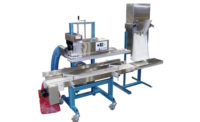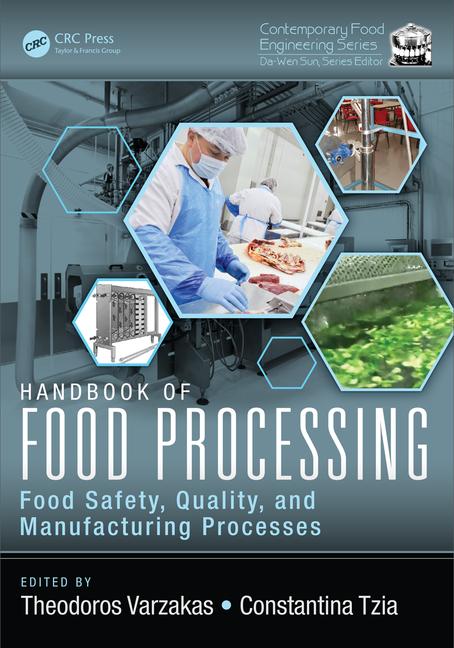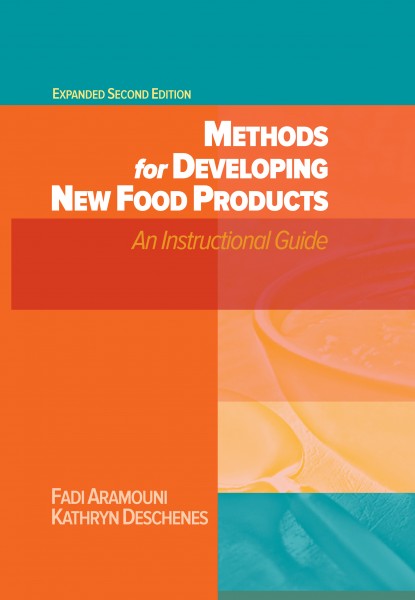Navigating food safety initiatives by integrating ERP and WMS

By Daniel Erickson
Food safety and product recalls are in the news almost daily. The baking and snack food industry are not isolated, with recent reports circulating about voluntary recalls of popular snack crackers by multinational corporations due to possible salmonella contamination. Food safety concerns are on the rise worldwide and according to the Centers for Disease Control, 76 million illnesses in the U.S. each year can be traced to food contamination. The global food trade, enforcement of stringent regulations and development of testing technologies only increases the emphasis on food safety initiatives for companies now and in the future.
Bakers and snack food manufacturers are keenly aware of the potential for a recall at any time and understand the importance of food safety procedures to mitigate harm to consumers and the company’s reputation. It’s also well known that savvy consumers expect companies to communicate the steps they are taking in regards to ensuring safe products in the marketplace. A warehouse management system (WMS) seamlessly integrated with enterprise resource planning (ERP) software provides the technology necessary to efficiently address food safety concerns and help your company remain successful in this complex, highly regulated and ever-changing industry.
Defining and differentiating ERP and WMS
ERP software solutions manage and integrate core business activities (planning, purchasing, inventory, production, sales, quality, finance and reporting) within an integrated suite of business applications facilitating the flow of information in an organization. The solution is developed to collect and retain data in a centralized database, standardize and automate business processes and streamline operations allowing an organization to make data-driven business decisions.
A WMS is a software application that supports day-to-day warehouse operations by automating the tracking of materials, encompassing all production processes from when raw ingredients enter a warehouse until finished goods are shipped. WMS utilizes barcodes, hand-held scanners and tablets on a Wi-Fi network to optimize inventory transactions, including the receipt and return of materials, tracking of inventory, document production, picking, packing, shipping, auditing, and report creation. It facilitates lean and just-in-time inventory practices for cost-effectiveness. In many instances the ERP provider also provides the WMS application as a native extension of it’s overall solution offering.
When ERP and WMS are fully integrated, the two solutions improve overall efficiency and align resources to meet food safety initiatives and increase accountability in the marketplace. Through sharing the same database, manual processes are reduced, real-time visibility of inventory is increased, duplicate data entry errors are eliminated and business data is accessible—increasing accuracy, providing validation and offering transparency throughout the organization.
Food safety initiatives & State of the Industry
With today’s connected consumer and food industry trends towards healthy, innovative and conscience eating, readily available information regarding specific ingredient details, origins and manufacturing processes are imperative. A focus on increased food quality calls for greater concentration on sustainability and corporate responsibility for today’s manufacturers, requiring an investment in technology solutions to meet these initiatives.
Customers today expect detailed information regarding how their food is sourced, manufactured and packaged. Maintaining approved suppliers lists are a best practice when sourcing raw ingredients both locally and internationally as they are an essential tool to provide accurate information to consumers and isolate ingredients in the event of possible product recall contamination. Drilling down into recipe lot number details to locate a contaminated batch of ingredients can be significantly time consuming without the supply chain management capabilities of an integrated ERP and WMS.
The supply chain and manufacturing processes of this industry are under scrutiny from consumers and governing bodies as there is heightened awareness around food fraud and possible allergic reactions from cross contaminations during production. Through instant visibility of inventory locations in WMS, manufacturers can accurately and quickly segregate and locate raw materials, work-in-progress (WIP) and finished goods.
Bakery and snack food manufacturers are not exempt from evolving challenges in complying to nutritional label requirements. Providing consumers with a comprehensive product label including nutritional analysis in regards to chemicals and preservatives, artificial coloring and sweeteners, allergens and potential food irritants is fundamental. Utilizing the labeling functionality within an integrated ERP and WMS solution ensures products and by-products receive the correct label with insight into ingredient and allergen statements for certifications including GMO, gluten-free, allergen-free, Kosher, Halal and organic.
ERP and WMS support food safety initiatives with:
1. Quality - Ensuring quality control practices are in place is a necessity for snack food and bakery manufacturers to deliver consistent and compliant products to the marketplace. Functionality in an ERP with WMS allows for in-process and customer-specific testing, generation of custom Certificates of Analysis (CofA), reporting and audit trail recording. The ERP and WMS help to manage, monitor and track finished goods with acceptance and inspection procedures to quarantine items that do not pass quality standards. If a quality concern or contamination threat arises, items are easily located for investigation. The system’s built in tools allow for tracking of the tests performed, the administrator(s) and the test results, providing a comprehensive record of the steps performed to ensure the quality and consistency of the snack food and bakery items. The solution also creates regular status reports to monitor the quality of products, issues reminders to conduct regular reviews as mandated by regulations and produces the required documentation for governmental agencies.
2. Reduction of Manual Processes – Manual methods including clipboards and sticky notes that require transferring to spreadsheets, make managing inventory time consuming, produce outdated information and increase the potential for errors. By leveraging ERP and WMS, data can be entered electronically from anywhere within the warehouse and on the production line, allowing for automatic inventory transaction updates. Integrated scanners and tracking technology stores information in a centralized database, eliminating the need for manual and dual-data entry. As a snack food and bakery manufacturer mandated by the FDA through the FSMA to maintain five years’ worth of records, having information available electronically saves time and effort should data need to be accessed.
3. Real-time Visibility – In conjunction with an ERP system, WMS tracks real-time data from production activities such as order entry, shipments, receipts and movement of inventory from raw materials to WIP to finished goods. This key functionality eliminates the guesswork of production planning with accurate information and instant insight into inventory amounts and usage patterns as data is entered or scanned. WMS provides the ability to track pallets and quickly complete inventory counts, assisting with lean inventory practices.
4. Traceability – ERP and WMS provide full supply chain visibility and accountability through its lot traceability from farm to fork. Instantly see lot number genealogy of materials used during the entire production and shipping processes with forward and backward lot traceability. WMS supports best practices for food safety standards by managing inventory availability and visibility, including quality status and expiration dates to manage and ship goods in an accurate and timely manner and reduce spoilage. Lastly, should a product recall occur, easily identify and locate possibly contaminated materials - determining where they were distributed to isolate the recall.
5. Recall Readiness – An FSMA compliant Food Safety Plan coupled with a recall response strategy, mitigates risk by isolating food safety issues to determine the extent to which a product has been affected. When successful, recall preparation allows your company to identify contaminated products and notify clients, vendors, customers and government agencies quickly to prevent damage from harmful products. A well-thought out, well-executed plan provides proactive measures to succeed and remain competitive in the marketplace. An industry specific ERP solution with WMS, provides the tools necessary to take preventative measures including developing, testing, and maintaining a recall plan. Not only is a recall plan imperative, but it’s recommended to conduct simulated mock recalls. These practice exercises allow employees to become familiar with procedures and their role within the plan should a recall occur—discovering trouble spots to make improvements.
6. User Security - With a current ERP and WMS system, bakery manufacturers are able to manage and tighten security at all levels. Software access is based upon end-user login permissions, providing transparency to track entered data back to an individual. In addition, user-defined roles and permissions within WMS provide the added benefit of ensuring that only approved individuals have access to scanner menus to perform certain transactions or lookup order information. These features provide better accuracy and accountability of users.
Bakers and snack food manufacturers are increasingly turning to the supportive technological capabilities of ERP and WMS that provide significant advantages in addressing food safety concerns, product recalls and consumer expectations. When an industry-specific ERP with WMS is utilized, quality control standards are met, manual processes are reduced, inventory visibility is increased, business data is accessible in real-time and a recall response strategy is maintained - increasing accuracy, accountability and compliance. Implementing these software solutions enables your company to be more competitive, efficient and profitable while navigating food safety initiatives.
Daniel Erickson has been with ProcessPro since 1999. As ProcessPro Product Strategy Manager, Daniel focuses on driving overall market success by ensuring products meet both current and future market demands. His diverse experience with the customer base within the food, beverage, nutraceutical, personal care, pharmaceutical, cannabis and chemical industries within ProcessPro provides a strong foundation for his position.
Looking for a reprint of this article?
From high-res PDFs to custom plaques, order your copy today!








